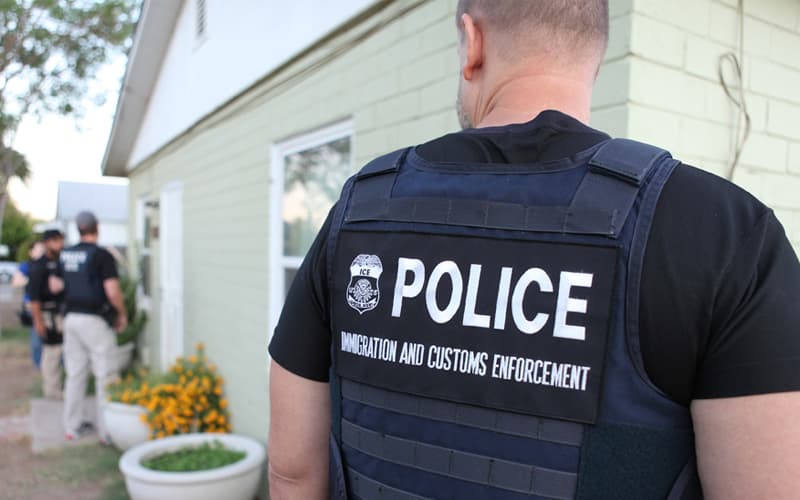Immigration enforcement agents arrested nearly 500 people across the United States this week, including 63 people in Denver.
The action, titled "Operation Safe City," targeted "sanctuary jurisdictions," according to a news release from Immigration and Customs Enforcement.
It seemed to indicate that ICE considers Denver to be a "sanctuary city" for undocumented immigrants.
Acting ICE Director Tom Homan said in his statement: “As a result, ICE is forced to dedicate more resources to conduct at-large arrests in these communities.”
Why Denver may have been targeted:
Denver recently passed a law that limits city employees' cooperation with federal immigration agents. Among other rules, it established that the city will not honor ICE's requests for immigration detainers.
In other words, city officials will not keep someone in jail and wait for immigration agents to arrive, unless the person would have been in jail on criminal charges anyway. Denver also won't allow ICE into secure areas of its jails without a warrant. The bill generally was meant to formalize things that the city already did, officials said.
Those rules apparently meet ICE's definition of "sanctuary" list. In the news release, Homan said that sanctuary cities include those "that do not honor detainers or allow us access to jails and prisons."
ICE said that the operation focused on people who had violated immigration law and had "criminal convictions, pending criminal charges, known gang members and affiliates, immigration fugitives and those who re-entered the U.S. after deportation."
Jenna Espinoza, a spokesperson for Mayor Michael Hancock, said that the city has a good legal reason not to detain people on ICE's behalf.
"Detainer requests without a criminal warrant were deemed unconstitutional by federal courts," she wrote in an email. Indeed, jails across Colorado generally refuse to hold people on these detainers, especially since a federal judge ruled that an Oregon jail had violated a woman's constitutional rights in such a case.
The city does, however, honor ICE's requests for notifications when persons of interest leave jail, according to Espinoza, though ICE occasionally has complained that the notice comes too late. Espinoza also noted that the city does detain people if ICE has a "criminal warrant which was deemed constitutional.
Who was detained:
According to ICE, 317 of the 498 arrested people had criminal convictions, ranging from minor marijuana offenses to violent crimes like sexual assault.
The agency has not released the names of anyone detained.
"They are trying to make a big showing about how the folks they have picked up are criminals — but even with their numbers, more than 30 percent of the folks the picked up were not even convicted of any crimes," said Ana Rodriguez, of the advocacy organization Colorado People's Alliance.
"Who else was picked up? Probably folks who were at the wrong place at the wrong time."
It is unclear how, when or where ICE agents detained people in Denver, except that it happened between Sunday and Wednesday. The Colorado hotline operated by immigration advocates did not hear any reports of door-to-door raids or mass arrests, Rodriguez said.
Was this any different from ICE's regular operations?
ICE's arrest numbers are up 43 percent since President Donald Trump took office, totally roughly 28,000 people, as The Washington Post reported.
However, this operation was relatively average in terms of the agency's recent operations. ICE has arrested roughly 125 people per day nationwide since January, almost exactly the rate of arrests during the four days of "Operation Safe Cities."
"To us, it’s really clear that they have been operating in Denver and the surrounding areas even before Denver passed any policy. They have been doing it without any fanfare," Rodriguez said.
"It’s just really clear that this was a political move by ICE to further push the narrative that immigrants are criminal, and it’s an effort to punish cities who have taken steps to protect our immigrants from federal overreach and ICE abuse."
Carl Rusnok, a spokesperson for ICE, said in an email that "such national operations are not unusual."
Last month, Mayor Michael Hancock acknowledged that the city's stance could draw federal reprisal, including the possibility of losing certain grants from the Department of Justice.
“We will not be bullied and we will not be blackmailed,” he said in August. “We lean on our values. The reality is we may lose funding. We understood that going forward. We are going to stand by our values because when this administration is over, that’s what we’ll be left with, our values.”













